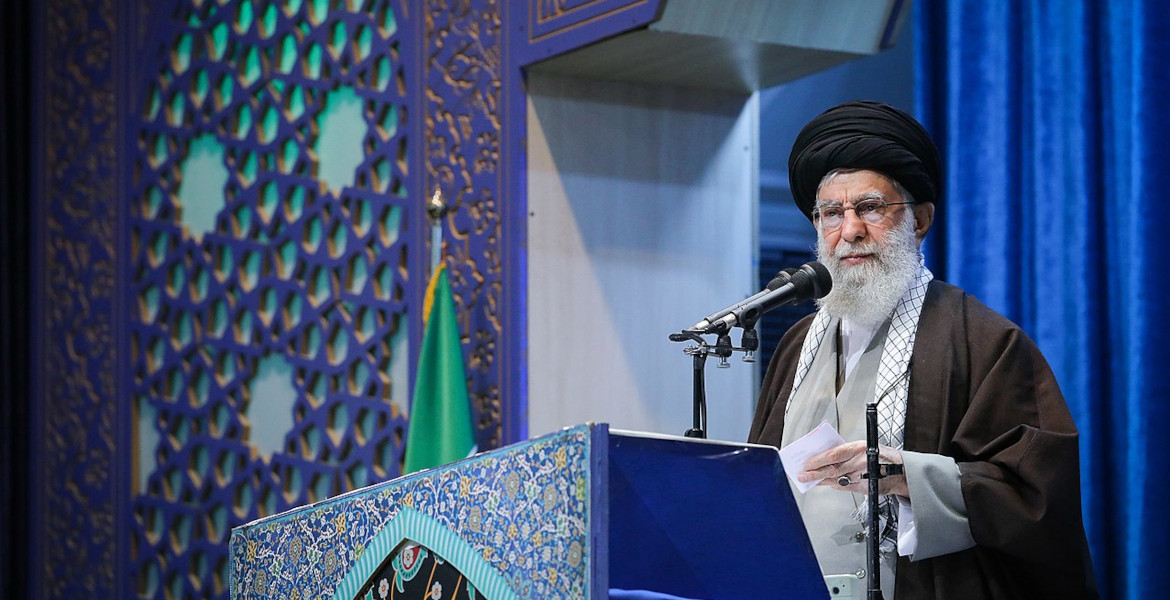Following the October 7 Hamas assault on Israel, dubbed as the “Al-Aqsa Storm”, the intensification of conflicts between Israel and Palestine has sent shockwaves through the Middle East, with Iran assuming a strategic role, tactfully employing both words and actions to advance its interests in the region. However, this involvement is not straightforward; rather, it resembles a well-thought-out manoeuvre in a complicated geopolitical situation.
Iran has long been a staunch ally of both Hamas and Palestinian Islamic Jihad (PIJ), providing them with financial aid, weaponry, and political backing. Yet, after the attack, Iran’s Supreme Leader Ayatollah Ali Khamenei swiftly distanced the nation from direct responsibility.
He emphasised that the assault was initiated by Palestinians, stating, “We support Palestine and its struggles but those who claim that the work of Palestinians is the result of non-Palestinian, are making a wrong calculation. This attack is the work of the Palestinians themselves, and we salute and honour the planners of this attack”.
His statement, therefore, exposes the striking dichotomy in Iran’s rhetoric. While Iranian leaders proudly extol the strategic victory of their allies, they simultaneously downplay direct involvement, opting for a game of calculated obscurity. President Ebrahim Raisi underscored the autonomy of Iran’s allies, emphasising their independent decision-making.
He stressed that Iran’s so-called axis of resistance allies “operate independently in decision-making, determination, and action. This approach has been the same in the past and will continue to be so in the future”. This carefully crafted narrative allows Iran to project strength without inviting the perils of a direct military confrontation.
Nonetheless, beneath the veneer of disassociation lies a web of support. This support aligns with Iran’s broader strategy of creating an “axis of resistance” against Israel and its allies, extending its influence across the Middle East. From Hezbollah in Lebanon to the Houthis in Yemen, Iran has meticulously cultivated a network of allies, solidifying its position as a regional power player.
A success for Iran
Iran, at least for the time being, seems to have emerged as a beneficiary of the devastating Israel-Hamas conflict as it has disrupted the possibility of reconciliation between Israel and the Persian Gulf Arab states, notably Saudi Arabia. It has caused chaos and the risk of a more extensive conflict in the Middle East. The blast at the Gaza hospital occurred due to an errant Islamic Jihad rocket, not an Israeli bomb. Yet, Iran accused Israel of being responsible for this tragedy.
Irrespective of the consequences faced by Gaza’s residents in the aftermath, the Islamic Republic perceives Hamas’ initial attack as a success. Israel’s towns and villages along the Gaza-Israel border were seized, catching its military off guard. Tragically, thousands of innocent Israelis lost their lives. Hostages were taken, encompassing not only adults but also children, grandparents, and foreigners.
Despite assertions from the US and Israeli officials that they haven’t identified a direct role by Iran in Hamas’ decision to initiate the attack on Israel, it appears evident that Iran played a part in this operation. The scale and complexity of the operation suggest that Hamas likely received approval or support from Iran. The planning and training involved point to an Iranian influence.
In fact, The Wall Street Journal has reported that Iranian Revolutionary Guard officers and Iranian officials met in Lebanon with representatives from Hamas, Hezbollah, and other militia groups sponsored by Iran. The objective was to encourage these groups to collaborate and coordinate their actions.
Khamenei can find contentment in the fact that this crisis serves the interests of Iran’s main ally, Russia, and its president, Vladimir Putin. The global focus has shifted away from the conflict in Ukraine to the Middle East. Israel’s developing ties with both Russia and China, who are now positioning themselves as critics of Israel and supporters of the Palestinians, have come under strain.
Consequences of Iran’s interest in the clash
For the Iranian government, leveraging the Palestinian struggle has been a longstanding strategy to bolster its own ideology and policies. However, this approach faces increasing challenges, especially as Iranians grow disillusioned with their government’s interventions abroad and its repression at home. The nationwide protest movement that followed Mahsa Amini’s death in custody serves as a reminder of the deep-seated discontent within the Iranian populace.
Pro-democracy activists within and outside Iran add another dimension to the discourse. While denouncing Western double standards, they also criticise the government’s support for groups like Hamas and Hezbollah. This internal dissent underscores the nuanced nature of Iranian society’s response to the Israel-Hamas war, spanning from government-aligned propaganda to genuine concerns for human rights and peace.
In the larger Middle East context, where diplomatic breakthroughs and détentes have teased the prospect of a more stable region, the Israel-Hamas conflict stands as a disruptive force. The violence has momentarily halted discussions on normalising relations between Israel and Saudi Arabia, providing Iran with a strategic advantage. However, the broader implications of the conflict pose a threat to regional stability.
Iran itself might face consequences for being a key player in the current chaos. Once the Hamas-Israel conflict concludes, the focus of the US, Israel, and European nations could shift towards Iran. Currently, some members of the US Congress are advocating for more severe sanctions against Iran, and there is a growing call to hold Iran accountable.
On Sunday, November 10, Israel’s Prime Minister Benjamin Netanyahu declared what he sees as the beginning of the end for Hamas. Should Israel successfully dismantle Hamas and its military capabilities, Iran would experience a substantial setback, losing a significant ally and source of trouble for Israel. The people of Gaza are unlikely to view Iran as having done them a favour by provoking Israel’s response. On the other hand, Israel, despite Khamenei’s characterisation of it as a “cancer” in the Middle East, will remain resilient.









